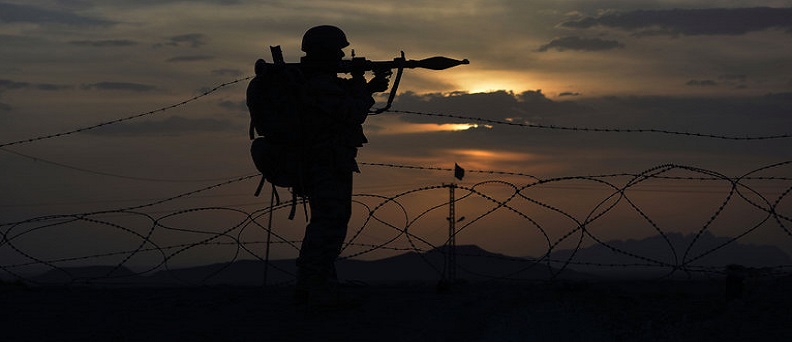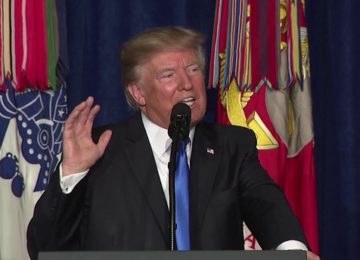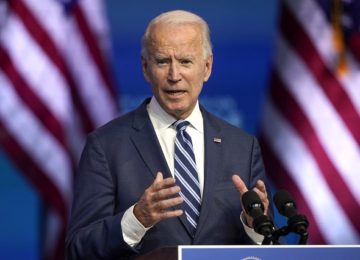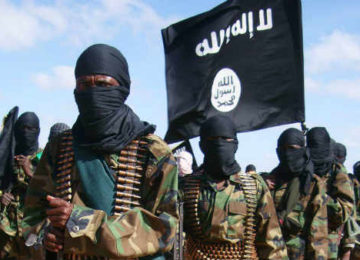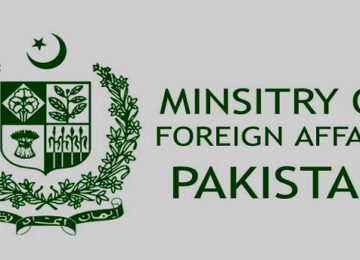It seems that with the increasing economic and political support of India for Afghanistan, the country has become bent on labelling Pakistan as the perpetrator of all its internal chaos.
A discussion at a US based think tank last week clearly reflected that even former US officials have realized that Afghanistan has attached unrealistic expectations from its eastern neighbor and continues to blame it for its indigenous chaos.
These former US officials were speaking at a conference organized by United States Institute of Peace (USIP) on July 12, 2017, on the theme, “In Afghanistan, U.S. still needs a plan to win the peace” in Washington where the four speakers categorically urged the US administration to move for a political settlement in Afghanistan using the help of Pakistan. According to these speakers, Pakistan was an undeniably important stakeholder and key player in Afghanistan’s affairs, among other regional partners.
Following the US-led 16 year war in Afghanistan with no peaceful solution achieved thus far, debates in US based think tanks are noting that a troop surge of a few thousand would hardly be a viable option to break the stalemate in the country. Additionally, it was also argued that an effective political dialogue with the inclusion of indigenous stakeholders, such as the Taliban, is the only effective resolution to the conflict in Afghanistan.
During the debate, however, some of the Afghan participants tried to pinpoint Pakistan as the cause for the chaos in Afghanistan and credited US aid for Pakistan’s economic development. The officials, however, disagreed.
Barnett Rubin, who has remained an Advisor to the Special Representative for Afghanistan and Pakistan from 2009-2013, clarified that the “US aid did not give rise to Pakistan’s economy.” He explained that there was a lot of misconception about the extent of US aid in general and, in particular, US aid was not given to Pakistan in return for Pakistan’s fight against Taliban in Afghanistan. In fact, he said, “US assistance to Pakistan was given under an agreement between General Musharraf and President Bush which allowed use of Pakistan’s territory to put our military in Afghanistan. Without Pakistan’s permission, we could not have entered our forces in Afghanistan, a landlocked country.”
The majority of US assistance to Pakistan is from the Coalition Support Fund which is a reimbursement to Pakistan for expenses already incurred and compensation for facilities made available to the coalition forces. If the US breaks the agreement, Mr. Rubin reminded, Pakistan can also follow suit and stop movement of NATO and US containers on its soil.
In response to such queries of the Afghan participants, Laurel Miller, former acting special representative for Afghan and Pakistan from 2016 to 2017, stated that even if the US cuts off 100 percent aid to Pakistan, it would not change Pakistan’s perception about its security concerns. While the US would wish to use its aid to press Pakistan from its position of supporting Taliban, she stated, the administration has to understand that Pakistan is not dependent on the US assistance anymore.
Certain Afghan participants also called for reconsideration of the Durand Line to which the US official, Laurel Miller, stated that “It is not a realistic thing to assume that the US will help Afghanistan in its claim on Durand Line” and that Pakistan would never accept it either. The US officials snubbed such statements of the Afghan participants, stating that any halt in US aid will not alter Pakistan’s position as the country is no longer counting on American assistance.
With the exception of India, all regional powers such as China, Russia, Iran and Pakistan, now want a non-military political solution to the Afghan conflict as no one wants permanent US military bases in their backyard.
Former US ambassador to NATO and former deputy national security advisor on Iraq and Afghanistan, Douglas Lute, stated that sending a few thousand more troops to Afghanistan will also not change the situation drastically and thus urged the US administration to engage in an effective political dialogue to resolve the conflict. Christopher Kolenda, former senior advisor on Afghan and Pakistan for the undersecretary of defense for policy, pointed out that the US is spending about $25 billion every year on Afghan war and a negotiated political solution is the only way forward for the US.
According to Miller, the US should facilitate an international mediator between the Taliban and the Afghan Government so that regional partners, especially Pakistan, could understand that the US is sincere in the peace process. “These countries would be in the region forever. They have stakes and if they see that a political outcome can protect their stakes, they are more likely to support that solution,” Miller pointed out.
In its efforts to find a peaceful solution to achieving stability in Afghanistan, Pakistan has been part of all peace processes in Afghanistan, including the Quadrilateral Coordination Group, which constituted the US, China, Afghanistan and Pakistan itself, and the Russian-led initiative which began with trilateral talks between China, Russia and Pakistan, later expanding to six-party talks to include Iran, India and the Afghan Government itself, and recently a 12-country forum in April, now involving even the Central Asian states.
Pakistan has remained continually committed in pursuing its policy of strengthening relations with Afghanistan whereby in April, it announced 3,000 scholarships for Afghan students in the field of higher education after utilizing the existing 3,000 scholarships. In addition, it has been working on modernization of the Pak-Afghan visa system as well as facilities at their border crossing points.
Earlier, Pakistan offered a generous sum of $500 million in aid to Afghanistan during the sixth Heart of Asia which was rejected by the Afghan government. It seems that despite all efforts by Pakistan, Afghanistan continues to doubt Pakistan’s sincere efforts with suspicion. Only this week, a Pakistani tribal jirga, with the sole intention of mending relations, visited Kabul to meet with Afghan authorities and representatives to discuss peace efforts but was with severe disappointment when its peace offer was turned down.
On the issue of peace and reconciliation in Afghanistan, Pakistan’s Adviser on Foreign Affairs Sartaj Aziz has reiterated that there is no military solution to the Afghan conflict and there is a need for focused efforts for a politically negotiated settlement for lasting peace in Afghanistan.
While the US has not been part of the recent Russian-led initiative, former US officials who have been associated with Afghanistan in some capacity have even begun calling for a politically negotiated settlement as the only solution to the Afghan dilemma.
Affirming the significance of Pakistan as an indispensable key player, US officials have even had to verbally remove the misconceptions that have developed regarding the magnitude of US aid given to Pakistan and urge the world to drop their unrealistic expectations from the country in terms of its role in Afghanistan. It is time the world adopts a realistic view of Pakistan.
The author Sitwat Waqar Bokhari is a Research Fellow at the Center for Research and Security Studies, Islamabad.



